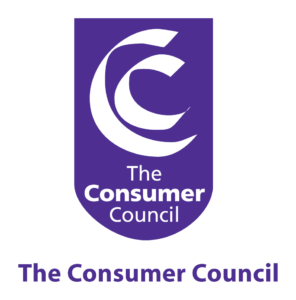Setting direction for Northern Ireland’s consumer champion

Amidst a changing landscape where consumers in Northern Ireland are facing increasing cost of living, the after effects of the pandemic, and the impacts of EU Exit, consumer protection is vital. Sheila McClelland, Chair of the Consumer Council of Northern Ireland reflects on her tenure, at a time when championing consumer rights has never been more important.
What is the role of the Consumer Council?
The Consumer Council is Northern Ireland’s consumer body and is responsible for protecting and safeguarding the rights and interests of its 1.9 million people. We have multiple statutory functions in the areas of consumer affairs, energy, post, transport, water and sewerage, and food accessibility. Alongside this, we have the designation to raise a super-complaint to the relevant regulator, here or in the UK, if there is concern that a market in the UK is, or appears to be, significantly harming the interests of consumers.
The day to day work of the Consumer Council is varied. Through consultations, education, outreach, research and campaigns on important consumer issues, the organisation ensures that the needs of the Northern Ireland consumer is placed at the heart of every decision made. We continuously monitor where pressures are being felt, what challenges exist, and what prevention and solutions can be sought.
Our free consumer helpline and websites have become vital sources of information and guidance for citizens across Northern Ireland, and supported by our outreach and community engagement work; the organisation strives to be available for people in a way that suits them.
The Consumer Council is an organisation which focuses on the many, not the few, and while doing so we pay particular care and attention to those who are disabled, chronically sick, of pensionable age, on low incomes, or live in rural areas. I personally see the necessity in representing the most vulnerable consumers and have championed a refocus in the organisation so that our services are accessible to those who need them most.
What is the Consumer Council’s biggest achievements in the past five years?
Consumer rights has always been a critical focus within Northern Ireland and in my time as chairperson of the organisation, we have experienced EU Exit, Covid-19, the ever-fluctuating cost of living and many legislation changes. Working within a fluid landscape, the Consumer Council, through its consultation, research and outreach, remains abreast of emerging issues within Northern Ireland and responds.
“Working within a fluid landscape, the Consumer Council, through its consultation, research and outreach, remains abreast of emerging issues within Northern Ireland and responds.”
For example, in 2017, we began investigating Private Parking Charge Notices (PCNs) in response to growing consumer detriment in this area. Since then, we have helped more than 6,400 consumers and have successfully appealed PCNs totalling over £500,000. In 2018, we further expanded our remit, increasing our footprint in the arena of financial exclusion by working with HM Treasury, and looking to the future, following the launch of Northern Ireland’s Energy Strategy, we hope to play a pivotal role in supporting consumers on their path to net zero energy.
How was the last 12 months for the Consumer Council?
Over 2020 and 2021, as consumers navigated EU Exit and Covid-19, flanked by the rise in digitalisation of services, the need for the Consumer Council’s front line services increased. During this time, the organisation managed over 12,500 enquiries and complaints, a 64 per cent increase compared to 2018-19. I am immensely proud of the Consumer Council team for their adaptation and dedication to the customer during the past two years, where they successfully returned over £1.5 million to the people of Northern Ireland through redress.
Covid-19 pushed the organisation to think creatively and find new ways of maintaining our service to consumers. It led the Consumer Council to diversify its offering further, now providing a hybrid approach to education and empowerment. The remote working world has also helped to streamline other aspects of our work; we expanded our connections through many regional, national, and EU-based fora, to demonstrate the lived experience of consumers in Northern Ireland through evidence gathered by our extensive research programme.
The Consumer Council’s success is evident; it achieved a 99.8 per cent customer satisfaction score in 2021, and in the same year became the first organisation in Northern Ireland to receive a British Standard 18477 accreditation for inclusive service provision; an accolade which we have retained in 2022.
What does the future look like for the organisation?
Looking at 2022 and beyond, the horizon contains further uncertainty for consumers. The rising cost of living, the risks and opportunities resulting from digitalisation, the growing move towards decarbonisation including the need for a just and fair energy transition, reducing financial inclusion and increasing consumer detriment all contribute to this uncertainty.
Based on the insights obtained from our research and outreach programmes, extensive ongoing engagement with stakeholders from government, academia, the advice sector, wider public sector and business community, we endeavour to get the clearest possible picture of the consumer position in Northern Ireland, which culminates in our annual Forward Work Programme. This opens for public consultation in February, and is crucial in ensuring that our work is relevant to the issues that matter most for consumers in Northern Ireland.
Through our Forward Work Programme, we strive to reach our objectives of protecting consumers, building their confidence, informing policy and educating consumers in making informed decisions, delivered through the lens of consumer protection principles that set out minimum standards for access, choice, safety, information, fairness, representation, redress and education.
The consultation on the Consumer Council’s Forward Work Programme opens on Monday 21 February 2022 and closes at 5pm on Friday 18 March 2022. Details on responding or attending the consultation briefings can be found at: www.consumercouncil.org.uk/forwardworkprogramme
Consumers can contact the Consumer Council:
T: 0800 121 6022
E: contact@consumercouncil.org.uk
W: www.consumercouncil.org.uk






